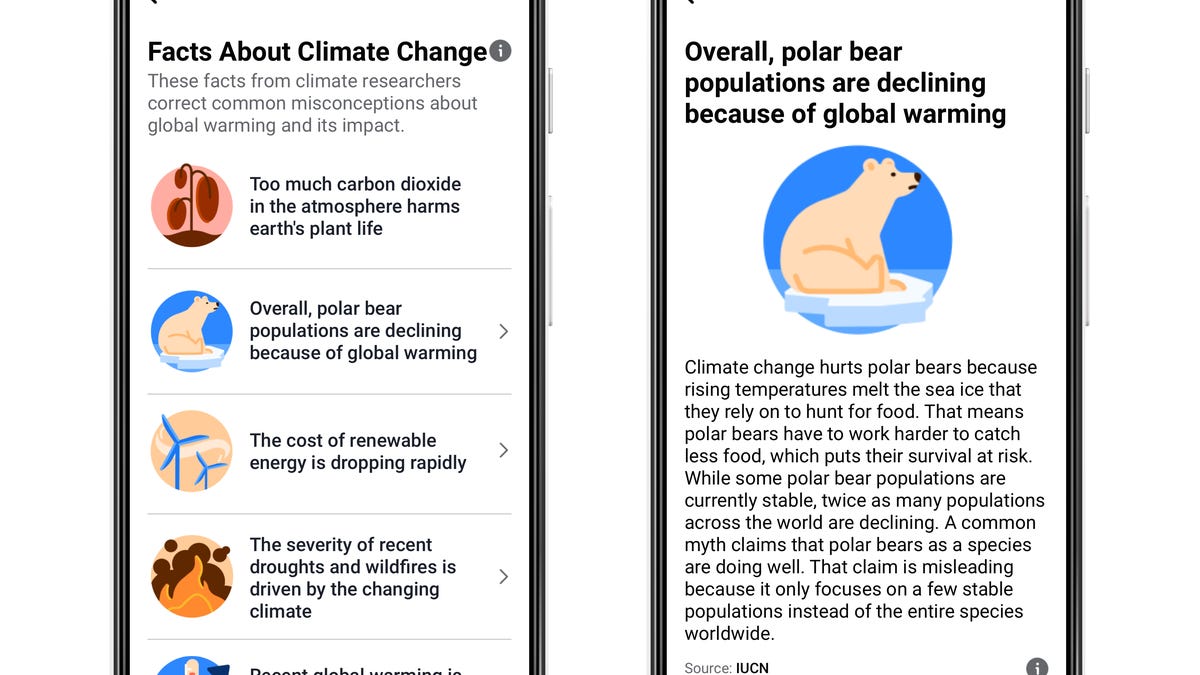Facebook doubles down on debunking climate change myths
The company is beginning to test adding labels to posts about climate change, directing people to its newly expanded Climate Science Information Center.

Facebook is trying to provide people with accurate information about climate science.
Facebook is expanding its efforts to tackle misinformation about climate change by expanding the reach and remit of its Climate Science Information Center. The company said on Thursday that the Center will now be available to Facebook users in 12 new countries: Belgium, Brazil, Canada, India, Indonesia, Ireland, Mexico, the Netherlands, Nigeria, Spain, South Africa and Taiwan.
Facebook first launched the Climate Science Information Center in September 2020 for France, Germany, the UK and US. It was designed to serve as a separate and dedicated space to connect Facebook users to factual resources from the world's leading climate organizations. These include the Intergovernmental Panel on Climate Change, the United Nations Environment Programme, the National Oceanic and Atmospheric Administration, the Met Office and around 200 other partners.
A new section is now being added to the hub, which focuses on debunking common climate change myths with the help of experts from George Mason University, the Yale Program on Climate Change Communication and the University of Cambridge. The experts have provided detailed information to unpick common misconceptions about the climate such as how temperatures rise and fall in natural cycles and how carbon dioxide greens the planet.
"Misinformation about climate change long predates the internet, but has been greatly amplified in our new digital world," said Anthony Leiserowitz from the Yale Program on Climate Change Communication in a statement. He added that he hoped the new additions would "help raise public climate change awareness and understanding worldwide."
Facebook also said on Thursday that it will begin testing labels in the UK, which will be attached to posts about climate change and direct people to the Climate Science Information Center. Facebook already adds similar labels to other posts to direct them to authoritative information sources, including posts about COVID-19. In countries where the Information Center isn't yet available, Facebook will start directing people to the UN Environment Program instead.
In a briefing ahead of the announcement, Edward Palmieri Facebook's global director of sustainability said that the company was establishing a dedicated product team to build features that help build on what Facebook communities already doing to make an impact on the climate crisis. This work will sit alongside the company's long-running corporate sustainability program, through which Facebook is aiming for net zero emissions across its value chain by 2030.
"We're committed to doing more to help the climate crisis," said Palmieri. "Today builds on more than 10 years of work that we've done to reduce Facebook's environmental footprint for our operations. We're currently on track to meet our goals."

